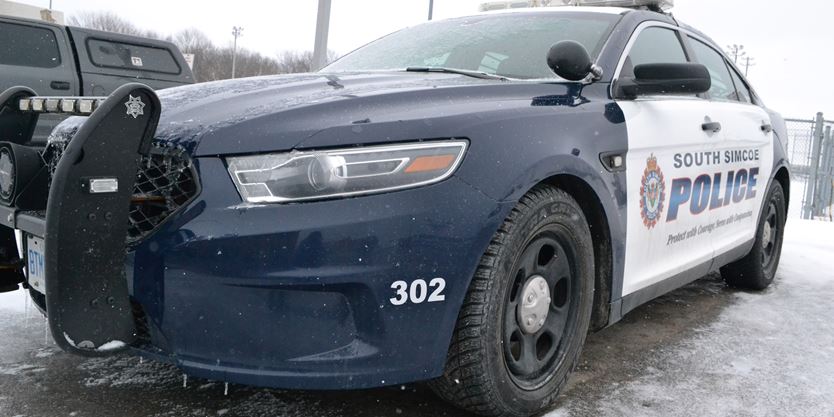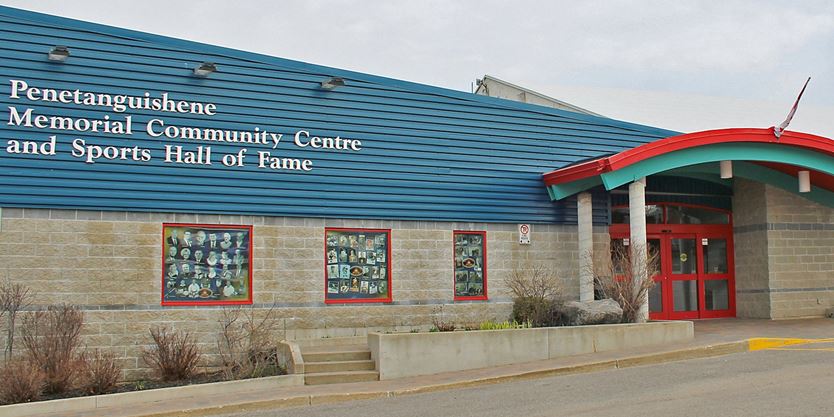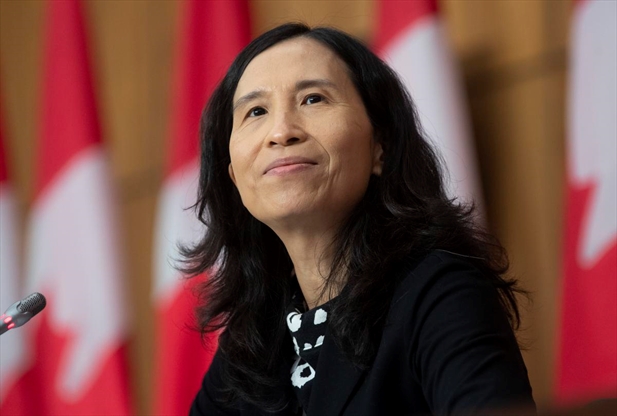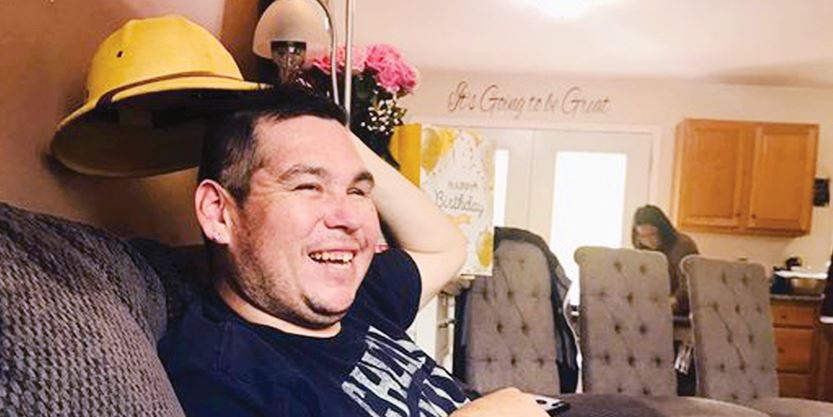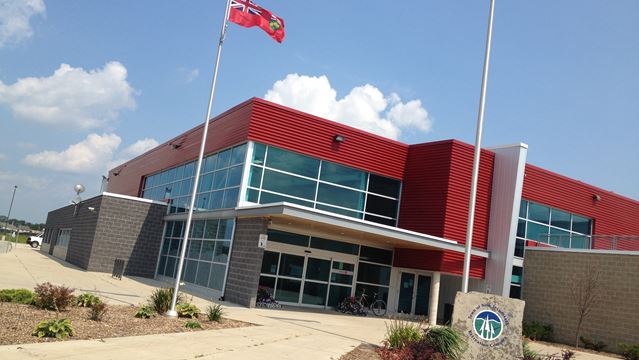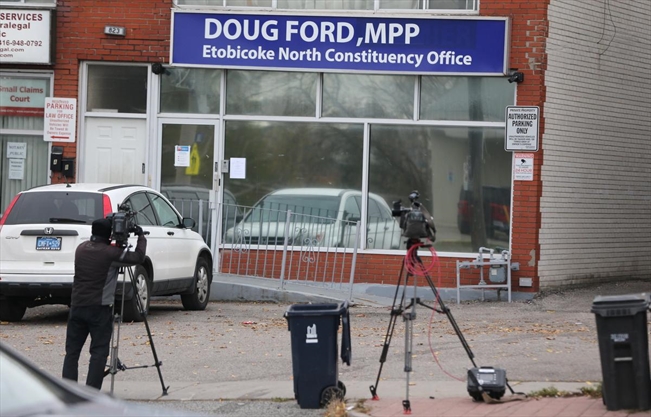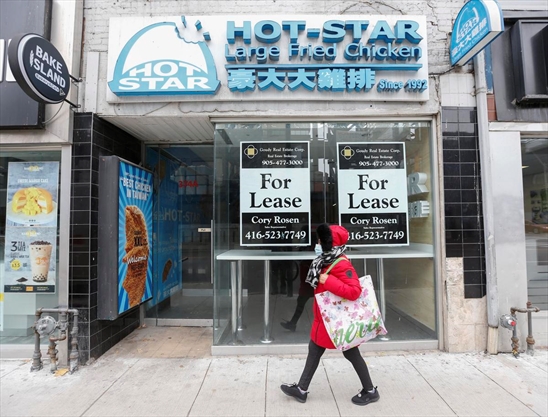The latest news from Canada and around the world Thursday. This file will be updated throughout the day. Web links to longer stories if available.
7 p.m.: Alberta is announcing another record-breaking day of new COVID-19 cases, according to The Canadian Press.
Dr. Deena Hinshaw, the Province’s chief medical health officer, says there are about 800 new infections, CP reports.

However, because of technical problems, she doesn’t have an exact number, Hinshaw said.
The previous one-day record of 622 cases was reported last Friday.
Hinshaw said she will be able to provide detailed figures tomorrow, and the rise in cases is “extremely concerning.”
6:19 p.m.: There have been 251,334 confirmed cases of COVID-19 in Canada, including 10,381 deaths, and 207,996 that have been resolved, according to The Canadian Press.
This breaks down as follows (NOTE: The Star does its own count for Ontario; see elsewhere this file.):
- Quebec: 111,056 confirmed (including 6,378 deaths, 94,884 resolved)
- Ontario: 80,690 confirmed (including 3,195 deaths, 69,137 resolved)
- Alberta: 30,447 confirmed (including 343 deaths, 23,874 resolved)
- British Columbia: 16,560 confirmed (including 273 deaths, 12,806 resolved)
- Manitoba: 7,177 confirmed (including 91 deaths, 2,920 resolved)
- Saskatchewan: 3,536 confirmed (including 25 deaths, 2,634 resolved)
- Nova Scotia: 1,119 confirmed (including 65 deaths, 1,036 resolved)
- New Brunswick: 347 confirmed (including six deaths, 313 resolved)
- Newfoundland and Labrador: 292 confirmed (including four deaths, 285 resolved)
- Prince Edward Island: 64 confirmed, all of which have been resolved
- Yukon: 23 confirmed (including one death, 20 resolved)
- Repatriated Canadians account for 13 confirmed cases, all of which have been resolved
- Northwest Territories: 10 confirmed, all of which have been resolved
- Nunavut reports no confirmed cases.
3 p.m.: A British Columbia man has been charged with three counts of violating the Quarantine Act, The Canadian Press reports.
Police in New Westminster say the man repeatedly left his home after returning from a trip to the United States late last month, according to CP.
Police say the man had been advised of the mandatory requirement to isolate for 14 days and was issued a ticket for defying the provision, but was arrested Monday for continued violations of the act.
Makhan Singh Parhar, 47, is being held in custody and is scheduled to return to court on Nov. 16.
2:45 p.m.: Jury trials are set to resume in several Ontario cities.
The Superior Court of Justice says selection of jurors and jury hearings will start Monday in Ottawa.
The same will happen a week later in Toronto, Brampton and Newmarket.
The chief justice of the court cites Ontario’s new COVID-19 rules in the affected areas.
Some capacity and social distancing limits will stay in effect.
However, the justice says court staff must be flexible in accommodating those who may not be comfortable attending in-person.
2:30 p.m.: The Quebec government that have closed gyms, restaurants and other businesses in much of the province, Premier Francois Legault said Thursday.
The comments came after the province’s opposition parties demanded the government release a document from Montreal’s health authority that is calling for gyms, museums and libraries to reopen.
“The risk of gatherings is too great at this moment,” Legault said told a news conference in Quebec City.
With 261 new COVID-19 cases reported in Montreal on Thursday, Legault said “the battle” has not yet been won in the city. However, the premier said the government will be reviewing its restrictions to allow more people to meet one-on-one.
Currently, only people who live alone are allowed to have guests, and they can only host one person at a time.
1:50 p.m. Manitoba Premier Brian Pallister is dropping the idea of a curfew to limit late-night socializing and reduce the spread of COVID-19.
Instead, the provincial government is adding enforcement officers to enforce public health orders, running new advertisements and urging people to call a government tip line to report violators.
The province is reporting 426 new cases and four additional deaths.
1:30 p.m. The Manitoba government is adding to its list of people who are enforcing public health orders during the COVID-19 pandemic.
Premier Brian Pallister says fire safety inspectors, motor carrier enforcement officers and municipal bylaw officers will help apply the rules.
He says that will raise the total number of enforcers to more than 3,200.
The province has cracked down following a spike in COVID-19 cases with rules that include a limit of five people for public gatherings.
Winnipeg police said this week they are prepared to start going to people’s homes to enforce that measure if they receive a complaint.
1:05 p.m. New Brunswick is easing restrictions in the Campbellton region due to what public health officials describe as a downward trend in the number of cases.
The region in the north of the province will be downgraded from orange to yellow level at midnight tonight.
The measure allows residents to meet in person with close friends and extended family, eases visitor restrictions for vulnerable settings and raises gathering limits, as long as distancing is maintained and masks are worn in indoor public places.
The New Brunswick government is reporting two new cases today in the Fredericton region, both among people aged 30 to 39 who are self-isolating.
12:40 p.m. Newfoundland and Labrador is reporting two new cases of COVID-19.
Health officials say both are travel-related, and both are residents of the province who returned home from work in Alberta, though the cases are unrelated.
One case is a man between 20 and 39 years old, and the other is a man in his 50s.
The province has had 294 confirmed cases since the onset of the pandemic, with five cases active today.
12:05 p.m. Nova Scotia is reporting one new case of COVID-19, bringing the province’s total number of active cases to 18. Health officials say the new case was recorded in the province’s central zone and is under investigation. As of today, Nova Scotia has recorded 1,119 positive cases, 65 deaths and 1,036 cases that are considered recovered.
11:15 a.m. Quebec is reporting 1,138 new cases of COVID-19 and 28 more deaths attributed to the novel coronavirus, 10 of which occurred in the past 24 hours. Health authorities say hospitalizations decreased by one compared with the prior day, to 538, and 82 people were in intensive care, a rise of one. The province conducted 27,326 COVID-19 tests Nov. 3, the last day for which testing data is available. Quebec has reported a total of 111,056 COVID-19 infections and 6,378 deaths linked to the virus.
11:09 a.m. Ontario is reporting an additional 68 new cases in public schools across the province, bringing the total in the last two weeks to 897 and 2,543 overall since school began.
, the province reported 37 more students were infected for a total of 512 in the last two weeks; since school began there have been an overall total of 1,435.
The data shows there are seven more staff members infected for a total of 78 in the last two weeks — and an overall total of 320.
The latest report also shows 24 more infected individuals who weren’t identified for a total of 307 in that category in the last two weeks.
There are 580 schools with a reported case, which the province notes is 12 per cent of the 4,828 public schools in Ontario.
One school is closed because of an outbreak. Elder’s Mills Public School, a French-immersion elementary school in Woodbridge, of COVID-19. The school is set to reopen on Nov. 11.
There is a lag between the daily provincial data at 10:30 a.m. and news reports about infections in schools. The provincial data on Thursday is current as of 2 p.m. Wednesday. It also doesn’t indicate where the place of transmission occurred.
The Toronto District School Board updates its information on current COVID-19 cases throughout the day . As of 10:45 a.m. on Thursday, there were 189 TDSB schools with at least one active case — 263 students and 66 staff.
The Toronto Catholic District School Board also updates its information . As of Wednesday at 2:55 p.m., there were 110 schools with at least one confirmed case — 88 students and 17 staff.
Epidemiologists have that the rising numbers in the schools aren’t a surprise, and that the cases will be proportionate to the amount of COVID that is in the community.
10:40 a.m. Quebec’s opposition parties are demanding the government release a document from Montreal’s health authority that is calling for gyms, museums and libraries to reopen.
The document, obtained by Radio-Canada, says maintaining the partial lockdown in the city risks causing serious health issues for the population.
Quebec solidaire today called on the government to release the brief while the Parti Quebecois said the province should act on the recommendations contained in it.
The Official Opposition Liberals say the government should take a decision on the document’s recommendations and explain itself clearly to the public.
Most of Quebec has been moved to the highest pandemic-alert level, under which gyms, bars and entertainment venues are closed and gatherings are banned.
Montreal’s public health authority is suggesting gyms, libraries and museums be reopened and that restrictions on outdoor and indoor gatherings be eased.
(UPDATED) 10:10 a.m. Ontario is reporting another 998 cases and 13 deaths in its morning update, with 35,754 completed tests. The seven-day case average is up to a new high of 982 cases/day. The seven-day average for deaths is up to a second-wave high of 11.0 deaths/day. Ontario is reporting 998 new cases of COVID-19 today and 13 more deaths related to the virus.
Health Minister Christine Elliott says there are 350 new cases in Toronto, 269 in Peel Region and 71 in York Region.
She says 948 cases were reported as resolved since the last daily report.
Ontario is reporting 381 patients in hospital due to COVID-19, 86 in intensive care, and 48 on a ventilator.
The province says that there were 68 new cases in publicly funded schools — 37 of those were among students, seven in staff, and 24 unspecified.
8:50 a.m. A version of influenza that’s only had 27 confirmed human cases worldwide since 2005 has appeared in Alberta — prompting an investigation by health officials.
The case of H1N2, which is a first for Canada, was detected in mid-October after a patient sought medical care while experiencing flu-like symptoms, according to a statement from officials Wednesday.
The person had mild symptoms, was tested and has recovered.
Although the case was detected at a time when the coronavirus pandemic has global health anxieties at a fever pitch — timing one observer Wednesday called “pretty unlucky” — experts say the appearance of the rare virus in Alberta does not signal a new public health threat.
8:47 a.m. With Torontonians poised to resume mingling in reopened bars, restaurants and gyms, public health officials are returning to full tracing of all contacts of everyone infected with in the city.
Dr. Eileen de Villa, the city’s public health chief, told reporters Wednesday the “scaling up” of efforts to identify everyone with the virus, and get them to isolate, is vital as the provincial order halting indoor dining and gym visits expires Nov. 14.
The order expires Nov. 7 for the other hot spots, Peel and York regions and Ottawa. Facing rising daily infection numbers that hit a record 427 on Tuesday, Toronto asked Premier Doug Ford’s government before reopening.
Lifting restrictions will increase mingling and infections, de Villa said, and her goal is to have as many safeguards as possible to prevent a disastrous increase in spread.
8:46 a.m. The number of Americans seeking unemployment benefits fell slightly last week to 751,000, a still-historically high level that shows that many employers keep cutting jobs in the face of the accelerating pandemic.
A surge in viral cases and Congress’ failure so far to provide more aid for struggling individuals and businesses are threatening to deepen Americans’ economic pain. Eight months after the pandemic flattened the economy, weekly jobless claims still point to a stream of layoffs. Before the virus struck in March, the weekly figure had remained below 300,000 for more than five straight years.
Thursday’s report from the Labor Department said the number of people who are continuing to receive traditional unemployment benefits declined to 7.3 million. That figure shows that some of the unemployed are being recalled to their old jobs or are finding new ones. But it also indicates that many jobless Americans have used up their state unemployment aid — which typically expires after six months — and have transitioned to a federal extended benefits program that lasts an additional 13 weeks.
8:21 a.m. Only nine intensive care beds were available at one point in the Twin Cities Wednesday morning amid a surge in the COVID-19 pandemic that is sending more Minnesotans into hospitals.
Metro ICU bed space grew scarce Tuesday due to the number of nurses and other caregivers who were unavailable because of their own infections or viral exposures that required quarantines. Episodic shortages have occurred in central Minnesota and other parts of the state.
“We’re at a red alert for ICU beds,” said Michael Osterholm, director of the University of Minnesota’s Center for Infectious Disease Research and Policy. “It’s bad.”
A record 908 inpatient hospital beds in Minnesota were filled with COVID-19 patients, according to Wednesday’s update of the state pandemic response dashboard. That includes 203 patients requiring intensive care due to breathing problems or complications from infections with the coronavirus that causes COVID-19.
While COVID-19 ICU admissions have nearly doubled since early October, patients with the infectious disease make up only 18% of total ICU usage. Among all 1,140 patients in Minnesota ICU beds, the majority are recovering from surgeries or being treated for unrelated issues such as strokes and traumatic injuries.
The dashboard shows that Minnesota has a capacity of roughly 1,500 immediately available ICU beds — with another 400 or so that could be readied within 72 hours — but one Twin Cities hospital physician said that overstates availability because open beds are useless without nursing staff to treat patients.
6:08 a.m.: Indonesia’s economy has fallen into recession for the first time since the Asian financial crisis more than two decades ago as the country struggles to control the coronavirus pandemic.
Statistics Indonesia, the central statistics agency, said Thursday that Southeast Asia’s largest economy contracted at a 3.5% annual pace in July-September, the second consecutive quarterly contraction.
The economy shrank at a 5.32% pace in the previous quarter and grew 2.9% in January-March, its slowest rate in almost two decades.
Indonesia has reported more than 425,000 confirmed cases of COVID-19, the largest in Southeast Asia and second in Asia only to India’s 8.3 million confirmed cases.
4:15 a.m.: Ontario’s Progressive Conservative government is set to unveil its first pandemic-era budget today.
The province has said the budget will lay out the details of the
That includes the new standard for long-term care announced earlier this week, which would see nursing home residents receive an average of four hours of direct care every day.
The Tories put off delivering a full fiscal plan earlier this year, citing the economic uncertainty caused by the global health crisis.
The fiscal update it gave in March instead initially included $17 billion in COVID-19 relief, though that projection was updated to $30 billion by the end of 2020-21.
The province also originally predicted a deficit of $20.5 billion, which was later raised to $38.5 billion because of the added spending.
4 a.m.: The latest numbers of confirmed COVID-19 cases in Canada as of 4 a.m. EST on Nov. 5, 2020:
There are 248,218 confirmed cases in Canada.
_ Quebec: 109,918 confirmed (including 6,350 deaths, 94,101 resolved)
_ Ontario: 79,692 confirmed (including 3,182 deaths, 68,189 resolved)
_ Alberta: 30,447 confirmed (including 343 deaths, 23,874 resolved)
_ British Columbia: 16,135 confirmed (including 273 deaths, 12,659 resolved)
_ Manitoba: 6,751 confirmed (including 87 deaths, 2,892 resolved)
_ Saskatchewan: 3,408 confirmed (including 25 deaths, 2,584 resolved)
_ Nova Scotia: 1,118 confirmed (including 65 deaths, 1,034 resolved)
_ New Brunswick: 347 confirmed (including 6 deaths, 313 resolved)
_ Newfoundland and Labrador: 292 confirmed (including 4 deaths, 285 resolved)
_ Prince Edward Island: 64 confirmed (including 64 resolved)
_ Yukon: 23 confirmed (including 1 death, 20 resolved)
_ Repatriated Canadians: 13 confirmed (including 13 resolved)
_ Northwest Territories: 10 confirmed (including 9 resolved)
_ Nunavut: No confirmed cases
_ Total: 248,218 (0 presumptive, 248,218 confirmed including 10,336 deaths, 206,037 resolved)
2 a.m.: India’s coronavirus outbreak rose by more than 50,000 cases Thursday amid a surging third wave of infections in the capital.
The Health Ministry also reported another 704 fatalities in the past 24 hours across the country, raising India’s overall death toll to 124,315.
Nerves are frayed in New Delhi after it reported a record 6,842 new cases in the past 24 hours. Its Chief Minister, Arvind Kejriwal, had admitted Wednesday that the city was going through a third wave of infections. It has more than 37,000 active cases.
In other developments in the Asia-Pacific region:
— Cambodia’s Prime Minister Hun Sen and four Cabinet ministers were in quarantine Thursday after they met with Hungary’s foreign minister the same day he tested positive for the coronavirus.
— China is suspending entry for most foreign passport holders resident in Britain in response to rising COVID-19 cases in the United Kingdom. The suspension covers those holding visas or residence permits issued prior to Nov. 3, with exceptions for diplomatic, service, courtesy or C visas.
Previously: for daily confirmed coronavirus cases as several states posted all-time highs.
Daily new confirmed coronavirus cases in the U.S. have surged 45% over the past two weeks, to a record seven-day average of 86,352, according to data compiled by Johns Hopkins University. Deaths are also on the rise, up 15% to an average of 846 deaths every day.
The total U.S. death toll is already more than 232,000, and total confirmed U.S. cases have surpassed 9 million. Those are the highest totals in the world, and new infections are increasing in nearly every state.

